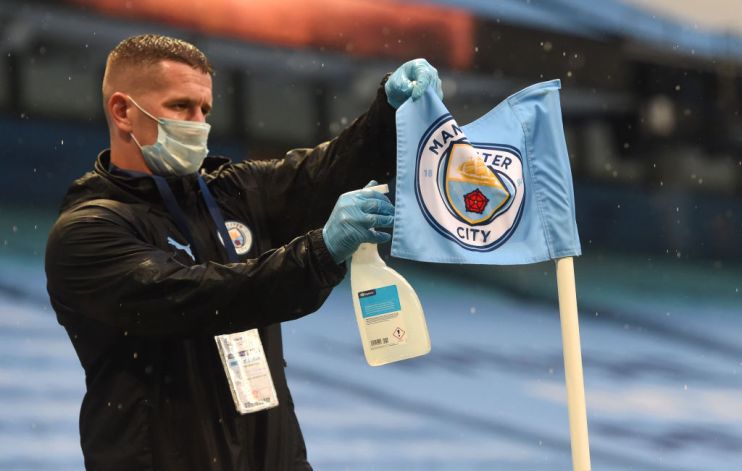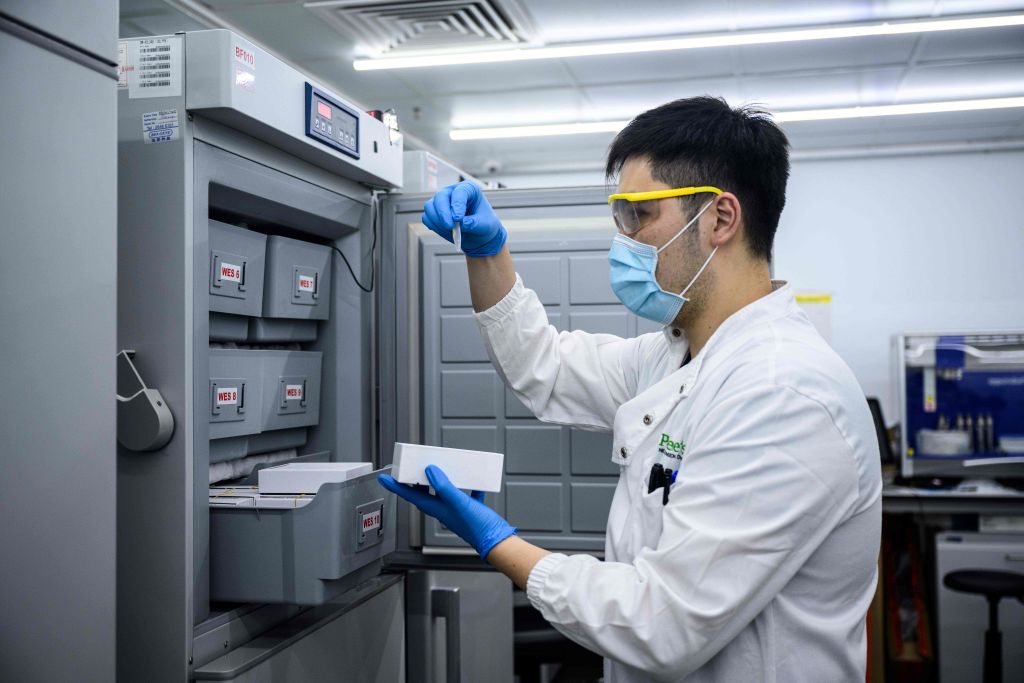UK needs 10m tests a week, says Premier League’s coronavirus adviser

The company behind the Premier League’s coronavirus testing efforts has backed calls for the government to introduce a UK-wide testing scheme by the end of the year.
Avi Lasarow, chief executive of testing firm Prenetics, has called on the government to swap its half-price restaurant scheme for a universal testing service across the UK.
He hopes such a scheme will allow people to get back to work and help the UK economy get back on its feet.
“The government has done a great job in developing a centralised strategy around laboratory testing, but we’re hoping that will evolve to allow for mass testing across the population on a fortnightly basis,” Lasarow tells City A.M.
He believes the scheme could be subsidised by ditching the Eat Out to Help Out scheme, where diners are offered £10 off meals at restaurants between Monday and Wednesday until the end of August.
That scheme is designed to encourage people to spend money at struggling cafes and restaurants. But Lasarow argues the same money could create a robust testing scheme that gives people longer term confidence to hit the high street.
“The chancellor could be thinking instead of pub lunch subsidies, testing subsidies for the same sort of price twice a month, and get everyone’s mindset back to some form of normality.”
Prenetics’ coronavirus testing in UK sport helped enable the Premier League season to conclude in a safe and timely manner following lockdown. It has delivered similar campaigns in boxing, Moto GP and cricket.
And now the company has joined the Confederation of British Industry (CBI) in calling for the government to roll out mass testing by the end of the year.
Lasarow offered his support for the call from the Tony Blair Institute for Global Change, with the initiative also getting cross-party support.
The report reads: “We know there is a delicate balance to be struck between health and economic concerns. We also know that the two are inextricably linked: an economy in freefall causes immense physical and mental harm and the uncertainty of lockdowns will lead to deep and lasting economic damage.
“Having the confidence to return to work and for consumers to interact with businesses is now a must, but it can only be achieved by learning to live alongside the virus. Short of a safe vaccine, mass testing is the only way to realise this.”
UK ‘needs to roll out 10m tests a week’
The government is currently capable of doing around 2m tests a week. But that capacity would need to increase to nearer 10m weekly tests over the next three months, Lasarow estimates.
That is the timeframe Prenetics predicts it would take to implement regular, country-wide testing.
“One of the ways to do that is to bring together a constellation of smaller companies, like ourselves, who are bringing innovative and new tech to market, but have also got tried and tested methodology, on how this can be done,” Lasarow says.
“We foresee in the next three months that these tests will be available globally like they are now for emergency FDA approval for under $10.”
Rapid advancements in testing tchnology means that antigen testing will not only be more affordable but could soon provide a result in less than 90 minutes.

The Blair-led initiative suggests these tests are rolled out on a sector-by-sector basis. Tests would initially target emergency services, social care and transport and education workers before reaching all industries.
Although there are a number of ways this could work, one approach could see employers take responsibility for testing employees with financial support from the government.
Lasarow argues that subsidising mass testing will do more to help open up the economy than other schemes, such as the Eat Out to Help Out campaign.
No vaccine makes testing the UK economy’s best hope
“Without a vaccine, people are always going to have the emotional fear of going out and not catching the virus,” he says.
“Until you can alleviate that fear, in this case with mass testing, people are always going to have a second thought about going out and getting involved in their everyday life.”
“We’ve demonstrated with a bubble in sport that’s how to do it. Award-winning economists are advocating that the cost of testing the country is far less than the impact [of coronavirus] on the economy, so it makes sense.”
With no guarantee of a vaccine, Lasarow is keen to push this as the next best way of helping society recover.
By allowing people to feel more comfortable leaving the house, he says it will not only help the economy, but also boost the country’s mental health and reduce the need for the additional measures that have been implemented since lockdown.

Are health passports the future?
Prenetics’ health passport plugs into an identification system on the owner’s phone using a QR code and confirms the result of a coronavirus test and when it was last done.
In essence, it would allow a person entry to a building on the basis of them having a negative coronavirus test result within a pre-determined timeframe.
This would most likely set by Sage, the government’s scientific advisory body. This is how all Premier League players gained admission to stadiums on matchdays.
“It works in all these sporting environments, so why wouldn’t that apply to going into City A.M. headquarters on a Monday morning? We’re familiar with the concept of turnstiles and scanning into work, this is exactly the same but takes it a step further,” says Lasarow.
“When we could use a credit card from our iPhone it was weird, but now you don’t think about it. The future is here. We will have health passports moving forward. If not for Covid-19, for the next thing that happens, and it will become part of our normality.”